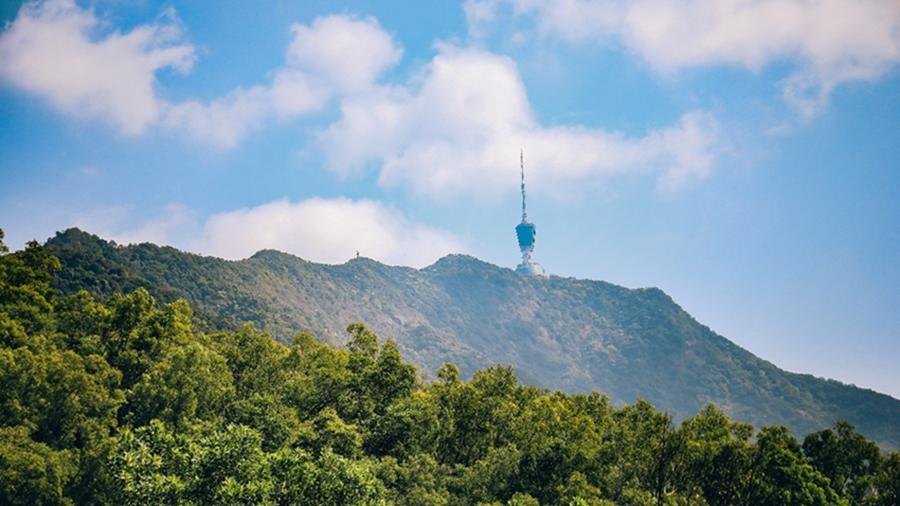Fragrant spices bring scent of prosperity to south China
NANNING, Dec. 9 (Xinhua) -- Sandeep Bhura, a trader from Seeds & Grains India Pvt. Ltd., proudly presents a pinch of turmeric for a curious buyer to smell at a spice fair in Yulin City, south China's Guangxi Zhuang Autonomous Region.
"Yulin is our gateway to China's vast markets, where the appetite for spices is on the rise, especially with the boom in barbecue and hotpot culture," Bhura said.
The city is famed for its spice production and is the epicenter of China's spice trade, managing a staggering 80 percent of domestic spice commerce and nearly two-thirds of the global total. Yulin's geographical location, coupled with its dynamic industry, has positioned it a key player in the domestic and international spice markets.
Star anise, a culinary treasure, is the beating heart of Yulin's spice industry. The region's favorable climate, abundant rainfall and aerated soil make it a suitable environment for the cultivation of this aromatic spice.
On the Liuwan forest farm in Yulin's Fumian District, star anise trees thrive under meticulous care. As winter settles in and the harvest season winds down, the trees remain dotted with young, green star anise fruits, which will reach full maturity in the spring.
The towering star anise trees, which stretch to over 10 meters in height, once presented formidable harvesting challenges. However, technological innovations, such as the introduction of crown-grafting techniques, have revolutionized the process.
"The dwarf varieties have boosted our yield by over 50 percent," said Wei Guobin, deputy general manager of a local forestry tech firm. "Their fruits are juicier and more resilient to disease."
Once harvested, sorted and dried, the star anise and other spices are transported to the city's spice market, where fragrances flood the air as sacks of spices are unloaded from trucks and prepared for buyers from near and far. The products are carefully arranged for selection, ready to be dispatched to destinations across China and beyond.
Yulin's trade hub status positions it as an ideal base for the conversion of raw spices into finished products.
One company engaged in this work is Shanghai Bolex Food Technology Co., Ltd., which opened a spice processing factory in Yulin earlier this year. Inside its production facility, spices undergo sorting, crushing, dust removal and sieving before becoming aromatic spice powders.
"Yulin's unparalleled access to a wealth of high-quality raw materials was our deciding factor," said Zhou Shuangqiao, who manages a company subsidiary.
Just a stone's throw away, one of the company's suppliers, Xiangweinong, sources raw materials directly from local farms and processes them to meet specific client needs. This proximity fosters seamless cooperation between the two enterprises, reducing operational costs and forming a tightly integrated supply chain.
The business cluster in Yulin not only draws downstream enterprises but also lures spice traders from afar. A company specializing in amomum tsao-ko fruits from southwest China's Yunnan Province recently opened a sales outlet in the city, keen to leverage the region's thriving spice industry to boost its brand visibility and expand its market presence.
Yulin's spice industry is booming, with over 233,000 hectares of land dedicated to spice cultivation. In the first 10 months of 2024, its spice trade volume exceeded 30 billion yuan (about 4.18 billion U.S. dollars), according to local authorities.
Moving forward, Wang Chen, secretary of Yulin's municipal Party committee, said that the city will continue prioritizing the development of its spice industry, aiming for integrated growth across production, distribution, exhibition and processing to cement its status as a global spice nexus.
Photos
Related Stories
- Taste delicious 'Laoyou' hot-and-sour rice noodles in S China's Guangxi
- Lusheng and horse fighting festival held in China's Guangxi
- In pics: morning market in Chengtuan Town of Liuzhou, S China's Guangxi
- China's Sizhou promotes rapid development of cultural and tourism industry
- China's Guangxi develops cultural tourism to advance rural revitalization
Copyright © 2024 People's Daily Online. All Rights Reserved.









